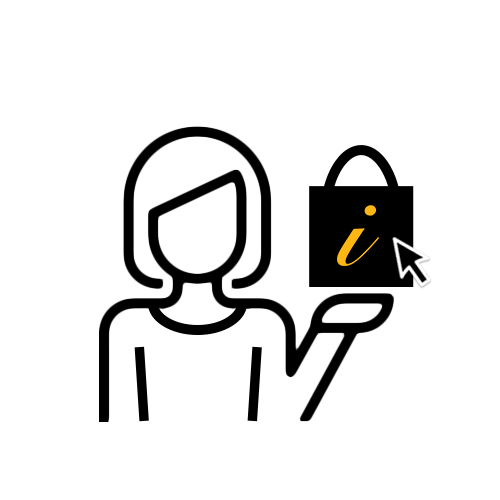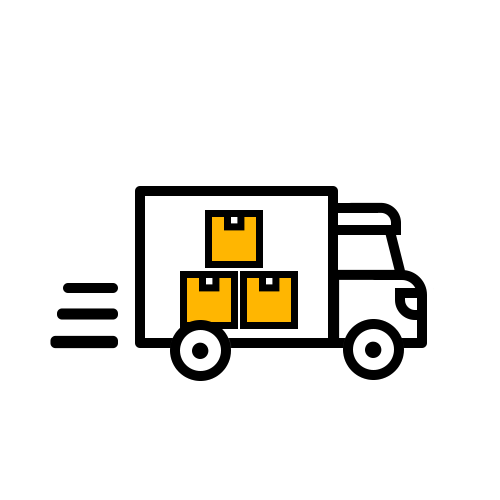RAJALANGIT77 # Situs Slot Gacor Toto & Bandar Togel 4D Hongkong Online Resmi Hadiah Terbesar 2026
RAJALANGIT77 # Situs Slot Gacor Toto & Bandar Togel 4D Hongkong Online Resmi Hadiah Terbesar 2026
$889.88 SGD
Unit price peror
Protection+ for RAJALANGIT77 (2 year plan)
Get it fast
Pickup
Loading store
Error loading
Limited Time Promotion
Limited Time Promotion
Apa itu RAJALANGIT77 ?
Apa itu RAJALANGIT77 ?
RAJALANGIT77 adalah situs resmi untuk bermain Slot Gacor Toto dan Bandar Togel 4D Hongkong online. Nikmati hadiah terbesar 2026 dengan pengalaman bermain yang terpercaya dan aman.
Pelajari Selengkapnya
Kenapa harus RAJALANGIT77 ?
Kenapa harus RAJALANGIT77 ?
RAJALANGIT77 dipilih karena menghadirkan kombinasi lengkap antara situs toto slot online resmi dan login toto togel anti blokir terpercaya 2026 dalam satu platform yang stabil dan aman. Setiap layanan dirancang untuk memberikan kemudahan akses, mulai dari link login resmi yang selalu aktif, sistem permainan transparan, hingga dukungan teknologi modern yang menjaga performa server tetap optimal.
Pelajari Selengkapnya











Limited Time Promotion
Financing
Trade in popup


Trade-In
Explore the devices to Pelajari Selengkapnya.
Trade-in your device in 3 easy steps!
Please contact us at [email protected] if you have other enquiries. Trade-in program is provided by "Carousell".
Frequently Asked Questions
What do I need to bring along?
You will be required to bring your charger and cable for laptops.
What if I do not like the value after assessment?
You can choose to not accept the trade-in value, but the value shown is final.
Can multiple devices be traded in during the same transaction?
Unfortunately, only one device can be traded in per transaction.
Do I get to keep the memory card from the trade-in devices?
We recommend that you remove and keep all your memory cards before you trade-in a device
Would I be able to get back my old device back after the trade-in?
You would not be able to retrieve your old device as all trade-ins are final. Prior to trading in your device, we recommend backing up all your important content such as contacts, photos, videos, etc.
Can I trade-in my device if it does not work?
We would not be able to assess your device if we are unable to power on your device.
What if my device is not found in the trade-in device list?
You can head down to our stores to get your device assessed by our iStudio Experts to check if it is accepted.
Collapsible content
Terms and Conditions
- Customer affirms that s/he is at least legally 18 years of age.
- "Customer" means the undersigned that is the owner of the Product or has been authorised by the owner of the Product to make decisions on the Product.
- The Trade-in programme is provided to iStudio customers by Laku6 as a third party company. Apple is not a party in the transaction.
- Laku6 and iStudio reserve the right to refuse, cancel, or limit the programme for any reason and may change these terms and conditions at any time without prior notice.
- The Programme is provided for lawful purposes only, to the extent permitted by law, Customer agrees to indemnify iStudio, Laku6, its affiliate and any of its directors, officers, employees, affiliates, subsidiaries or agents from and against claims brought against any of them arising from Customer's breach of terms and conditions of the Programme.
- iStudio trade-in programme is only available at all iStudio stores (excluding Airport Terminal Stores)
- Total trade-in value is not transferable.
- iStudio reserves the right to refuse any customer's eligibility at any time in its discretion in the even of such customer's breach or suspected breach of any of the terms and conditions herein without prior notification or any liability to such customer whatsoever.
- iStudio reserves the right to vary any term or condition. iStudio will, where it is practicable to do so, give customers advance notice (which may be through written notice, electronic mail letters, iStudio website, or such other forms as iStudio deems appropriate) of such changes.
- This iStudio Trade-in programme is limited to one (1) device per eligible trade-in.
Why Shop Online
RAJALANGIT77 # Situs Slot Gacor Toto & Bandar Togel 4D Hongkong Online Resmi Hadiah Terbesar 2026
RAJALANGIT77 adalah situs toto slot gacor sekaligus bandar toto togel 4D hongkong online resmi dengan hadiah terbesar, akses login cepat, prediksi harian lengkap, layanan pelanggan 24 jam, serta bonus menarik setiap hari.
Setiap pemain dapat menikmati beragam pasaran toto togel berkualitas, mulai dari regional hingga internasional, yang disajikan dengan pembaruan data real time dari sumber resmi terpercaya untuk menjaga transparansi dan keakuratan hasil permainan.
Didukung teknologi modern, RAJALANGIT77 menghadirkan fitur analisis pola RTP slot online yang informatif dan akurat, membantu pemain dalam mengambil keputusan bermain secara lebih terukur untuk pengalaman bermain toto slot yang aman, efisien, dan relevan di tahun 2026.
RAJALANGIT77 # Situs Slot Gacor Toto & Bandar Togel 4D Hongkong Online Resmi Hadiah Terbesar 2026
Apa itu RAJALANGIT77 dan mengapa banyak pemain memilihnya?
RAJALANGIT77 adalah situs toto slot gacor sekaligus bandar toto togel 4D hongkong online resmi yang menyediakan permainan togel dan slot dengan sistem aman, akses cepat, serta hadiah terbesar bagi para pemain di indonesia.
Apa yang membedakan RAJALANGIT77 dari situs toto slot online lainnya?
RAJALANGIT77 mengutamakan kualitas pengalaman bermain Mulai dari pemilihan provider slot berkualitas, pasaran togel premium terverifikasi, hingga sistem transaksi cepat yang dipantau secara real time untuk menjaga kepercayaan pemain.
Mengapa RAJALANGIT77 disebut sebagai situs toto slot gacor & bandar toto togel 4D Hongkong terpercaya?
RAJALANGIT77 menghadirkan permainan toto slot sekaligus togel 4D online berkualitas dengan 80 jenis pasaran terbaik seperti hongkong lotto resmi dengan data real time, sistem transparan, serta proses penarikan kemenangan yang cepat dan jelas sehingga dipercaya oleh banyak pemain.
Apa keunggulan situs toto slot gacor di RAJALANGIT77?
Situs toto slot RAJALANGIT77 menawarkan variasi game lengkap, taruhan fleksibel mulai dari nominal kecil, RTP live informatif, serta peluang kemenangan besar yang dirancang untuk pengalaman bermain yang lebih optimal.
Apakah RAJALANGIT77 aman dan layak dipercaya sebagai situs unggulan di tahun 2026?
RAJALANGIT77 terkenal sebagai situs terbaik yang menggunakan teknologi keamanan berlapis, enkripsi modern, serta layanan pelanggan 24 jam untuk menjaga keamanan data dan kenyamanan bermain hingga tahun 2026.
Bagaimana cara login ke RAJALANGIT77 tanpa kendala?
Pemain dapat menggunakan link login resmi RAJALANGIT77 anti blokir yang selalu diperbarui. Sistem akses dirancang agar tetap cepat, stabil, dan aman meskipun terjadi pembatasan akses dari jaringan tertentu.
Apakah RAJALANGIT77 cocok untuk pemain pemula maupun berpengalaman?
Sangat cocok. RAJALANGIT77 menyediakan antarmuka yang mudah dipahami untuk pemula, sekaligus fitur lengkap dan data pendukung bagi pemain berpengalaman. Kombinasi ini membuat RAJALANGIT77 relevan bagi semua level pemain toto slot dan togel online.
Apakah RAJALANGIT77 benar-benar memberikan hadiah terbesar?
RAJALANGIT77 dikenal memberikan hadiah terbesar dengan sistem pembayaran transparan, bonus rutin, serta promo menarik yang meningkatkan peluang keuntungan pemain secara konsisten sejak tahun 2020.
Review Member RAJALANGIT77
“Cuma di RAJALANGIT77 aja situs toto slot yang beneren kasih bukti gacor saat saya coba main di permainan zeus nya. Sangat wajib dan sangat rekomendasi untuk di coba sih.”
⭐ 5.0 – Tomi Wiguna“Bakalan main Panjang sih ini kalua di RAJALANGIT77. Bintang 5 untuk segi pelayanan mulai dari CS yang ramah banget bjir, akses login juga cepat dan mudah, ada sistem proteksi anti blokir nya lagi, dan yang buat nagih sih hadiah togel nya beneren paling besar dan resmi. Sukses selalu untuk kru team RAJALANGIT77 semakin jaya di tahun 2026 ini !”
⭐ 4.9 – Ajo Padang“Main disini itu udah paling aman deh, mau menang berapa aja pasti dibayar. Pilihan permainan yang disediakan juga sangat lengkap dan semua sudah memiliki sertifikat resmi toto WLA sama slot PAGCOR lagi di RAJALANGIT77 ini !.”
⭐ 4.8 – Daya Pratama- Choosing a selection results in a full page refresh.
- Opens in a new window.
Store availability

RAJALANGIT77
Bonus dan Promosi dari RAJALANGIT77 ?
Bonus Angka Togel Terbalik 4D 3D 2D
Bonus Togel Prize 2 dan Prize 3
Bonus Scatter Mahjong Ways
Bonus Petir Zeus & Starlight Princess
Bonus Luckyspin Tanpa ZONK













 Promo
Promo